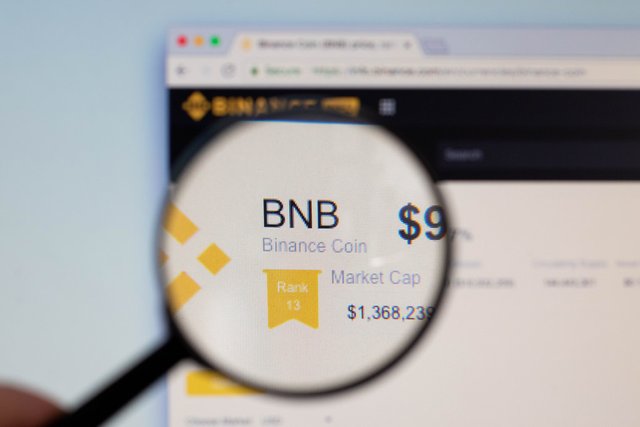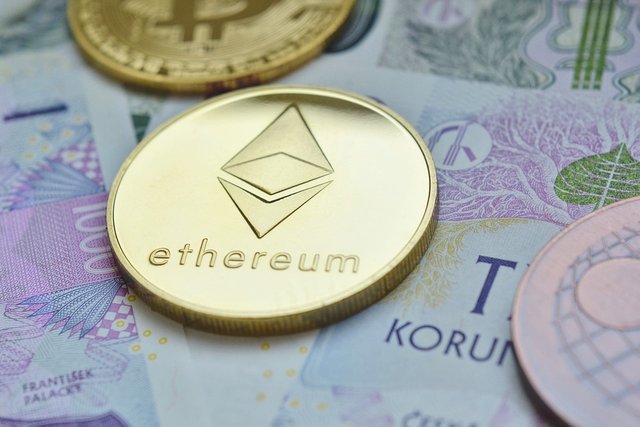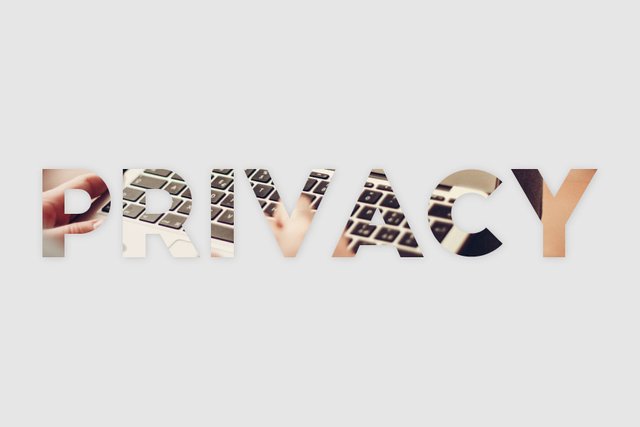📰 This Week In Crypto: Binance Coin Increases in Value; Regulators Propose More Law-to-Crypto Measures; Fidelity Investments Launches Its Platform
.png)
Bitcoin completes this week at the level of $3800, yielding to the growth dynamics of altcoins. Several news points indicate a possible tightening of regulation, while the "security issue" seems resolved. Analysts also expect a new round of the downward trend in the crypto market.
Fidelity investments Launched Digital Assets Platform
Fidelity, a financial services provider managing several trillion dollars, has finally launched Fidelity Digital Asset Services, although for now the platform is available only for testing by a limited number of customers.While the news on Bakkt seem to be exhausted, and now we have no information on how things are going with this project, Fidelity will at least offer its solution, probably very soon.
We are live with a select group of eligible clients and will continue rolling out slowly. Our solutions are focused on the needs of hedge funds, family offices, pensions, endowments, other institutional investors. More on our project: https://t.co/EkJ2pWJt2Y #DCBlockchain
Fidelity Digital Assets (@DigitalAssets) March 7, 2019
"We are committed to exceeding the requirements and standards of existing solutions with both our custody platform and trading venue — providing a combination of security and a central point of market access, disrupting the obfuscated nature of trading digital assets today."
The question of whether assets other than Bitcoin will be added remains open. Jessop (FDAS president) is confused by changes in the Ethereum's network, such as hard forks, so Fidelity will observe it.
It is not known how the arrival of Fidelity will affect the cryptocurrency market. On the one hand, the crypto space has many offers, such as crypto exchanges and even DEXs. At the same time, big money (if they come) will come precisely to Fidelity, which will make the whole crypto y at least more volatile.
Binance Coin: The New Favorite Of Bear Market

Can cryptocurrencies remain profitable in a bear market? Definitely yes, especially when it comes to the medium term. Today, investors have frankly little hope and little confidence in developing projects; such factors as many scam overall, the stable correlation with Bitcoin trends (when BTC drops, all currencies go down), all these points provoke an outflow of capital.
→ BNB no longer tracks Bitcoin
→ Justin Sun calls BNB a new Bitcoin
→ Argentinian government will invest in startups launched on Binance
→ New details on $CELR Token Sale
Suddenly, the one of the largest crypto exchanges Binance allows investors to rediscover the offer of BNB token. This is the stability and recognition of the team, the ability to use the native token (Binance can do it, but it cannot be done in the USA because of regulatory issues, for example). Many users liked this and they decided to pay attention to the token offerings, which are held at Binance Launchpad. All these factors in the complex could significantly affect the market value of cryptocurrency.
Thus, several factors still keep BNB on top:
- Bear market and lack of bright alternatives;
- The company's influence and its popularity;
- Complex marketing lines that contribute to hype (as it can be in modern conditions).
Looking at the charts, now BNB is one of those currencies, the price of which comes off the correlation with Bitcoin. However, we understand that the pump and dump, complex market relations and the financial condition of the company can affect the price of the token and lower it to the bottom (in the negative scenario). Any decisions must be made carefully today. We will continue to monitor developments.
Ethereum May Increase Commissions To Support Developers

The recently announced initiative of the Ethereum creator Vitalik Buterin is to increase user fees in order to financially support wallet developers and clients created for this cryptocurrency. A small but constant commission ($ 0.01) will allow developers to receive from the community an additional up to $2 million per year. This is probably not the worst measure to develop the software infrastructure of Ethereum.
I propose we consider supporting a community norm that client/wallet devs can/should charge a 1 gwei/gas fee for txs sent through their wallet, we don't try to circumvent such fees, and we support protocol changes to make such fees easier (eg. abstraction enabling multisends)
Vitalik Non-giver of Ether (@VitalikButerin) March 8, 2019
However, the proposal also met some well-reasoned criticism. A number of projects, such as MultiBit, have already tried to use small stable commissions, but the idea was not successful.
"I came up with the proposal after talking with economists at the Economics and Computation conference at Cornell last year … I’m hoping the proposal can be included soon,"
Today Ethereum is one of the most popular cryptocurrencies as well as the basis for creating smart contracts. The capitalization of ETH is 14 billion.$, making it the 2nd digital asset by market capitalization after Bitcoin. The overall communities contribution to Ether is significant, including the findings of various developers, especially in bounty bug program and the like. The recent report by Delphi Digtal can show more facts about Ethereum crypto.
Anonymous Cryptocurrencies Under Threat Of Ban In France

The exchange and trading of anonymous cryptocurrencies have become the subject of discussion by French regulators. According to them, Dash, Monero, Zcash and Bitcoin Private, cryptocurrencies with heightened anonymity, can be banned.
According Eric Woerth, who belongs to The Finance Committee of France’s National Assembly and proposed this law:
"We must be aware of the problems that crypto-assets may pose in terms of fraud or tax evasion, money laundering or fraud, or energy consumption."
Cryptocurrencies, which blockchain and infrastructure are oriented towards greater anonymity are thus perceived as a threat. This is not a healthy state of affairs, of course, since privacy is an integral part of modern legislative thought (in theory). It is also hard to believe how to prohibit cryptocurrencies based on their properties, such as anonymity or difficulty to track.
Regulatory issues should be considered in more detail.
Germany Presented Recommendations On The Regulation Of Blockchain-Based Securities
German regulators have introduced new amendments regarding securities. It is noteworthy that securities and securities on the blockchain, as well as tokens, are three separate categories. Thus, the German department is likely to continue to maintain this distinction and not to consider tokens as securities by default.
Amendments can still be made to this law:
"After conducting and evaluating the public consultation of this paper, the drafting of a draft bill is planned, which takes into account the feedback on this paper and the options for action it proposes".
However, this does not mean that the regulator does not caution. So, at the ICO stage there may be risks according to which the token will be a security and be regulated according to completely different rules. Reminding that now there are several major precedents associated with the discovering of the token as a security, for example, Ripple (XRP) faced it in connection with US regulatory measures.
Regulators Can Take Restrictive Measures Against Cryptocurrencies Justifying This By North Korean Influence
So, a number of planned measures and speeches in a number of countries form a general trend, which can be described as a restrictive policy regarding cryptocurrencies. The recent news concerns France, where it is proposed to limit the use of so-called anonymous currencies, such as Monero and so on. On the other hand, Russia, where digital legislation is not yet fully defined, purposes the identification of cryptousers; it also introduced criminal penalties related to the use of digital assets (largely due to the anti-money laundering policy).

This time, the media say that North Korean hackers are supposedly able to carry out their raids and thereby support the despotic North Korean regime, and the crypto-infrastructure existing in many countries, thus, helps this. Thus, regulators are likely to want to identify users of cryptocurrencies in order to know whether they are North Korean hackers or not.
Of course, this technique is essentially demagogic. The main goal is to take bold steps to establish control over cryptocurrency users around the world. On a more fundamental level, there is no difference in how a crime is committed: by using crypto, fiat money or other means of exchange, as it was many centuries ago. So far, there has also been no explicit research on how cryptocurrency stimulates (if so?) money laundering, what is the total share and potential of digital money in this area. In general, for the average user, cryptocurrency can do more good than harm, so questions about regulatory trends remain.
All opinions are subjective.
The Alleged Leader Of The Financial Pyramid OneCoin ("Worth" Several Billion) Arrested In US
Financial pyramids are still in fashion and continue to parasitize on people's wallets. OneCoin, a company based in Bulgaria, founded in 2014, is a variation of the classical pyramid scheme, according to which holders had to attract new currency buyers and receive a commission, that is, a reward. The creators of the scheme that worked for several years - Konstantin Ignatov and Ruja Ignatova - were arrested / potentially take part in the investigation (Ignatova) in the USA.
OneCoin actually has no working platform/blockchain/DLT base. According to it, OneCoin is a nominal exchange tool. However, this did not prevent the 3 million members of the scheme around the world from generating an income of 3,353 billion euros belonging to Ignatovs. It is also possible that, without intervention, OneCoin ended with an exit scam as it usually happens.
According to the publication:
"… the leaders of the project emailed each other saying that they planned to "take the money and run and blame someone else for this."
The Sovereign (SOV) Digital Currency Will Be The First "National" Crypto In The World
The discussion on so-called national cryptocurrency continues. Although the IMF does not recommend the use of this tool, the Marshall Islands will probably issue their sovereign coin and use it as well as the US dollar.
Marshall Islands President Hilda Heine says:
"This is a historic moment for our people, finally issuing and using our own currency, alongside the USD…It is another step of manifesting our national liberty."
Republic of the Marshall Islands, having a quick glance at Wikipedia, is a small island nation in Micronesia; it transferred a significant part of its powers to the United States and has a population of about 50,000 people. It is also a fairly warm island, which has an average annual temperature of about 30 degrees. In general, the tourism sector is not very developed here. But the removal of formal restrictions on cryptocurrencies could do a lot of economic work here.

Next Week Events
Updates & releases
- Siacoin (SC) is preparing for V1.4.0 Tentative Release on March 10
Airdrops
- BTT Airdrop (monthly) is planned for March 11
Listings
- Callisto Network (CLO) will be listed on undisclosed exchange on March 11
Other assets
- Bitcoin Future Contract (XBTH19) expires on March 13
We do not recommend investing in any projects. We also remind of high risks associated with cryptocurrencies.
🏛 "Colorado digital token act" now excludes cryptocurrency from securities law | Russian Duma may adopt a law on "cryptocurrency visa"
💸 CelerNetwork ($CELR) token sale on Binance Launchpad will take place on March 19 to March 24, 2019 | Tether (USDT) will be launched on TRON blockchain
💱 Cryptopia's read-only site is now live: balances info will be used to return funds | Binance is soon to open new affiliative in Argentina | Huobi Prime (to be released soon) will list HT-based tokens
👁 Co-founder of QuadrigaCX is associated with large positions on BitMEX




You got a 2.90% upvote from @minnowvotes courtesy of @icotelegraph!